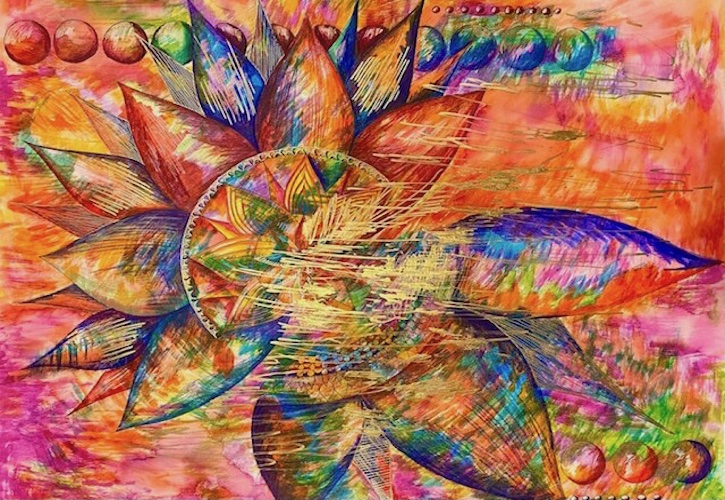Let's Talk Human Rights

16 Days: The Global Fight to End Gender-Based Violence
By Jamie L. Small
The COVID-19 pandemic has wreaked havoc on the social fabric of communities around the world. Yet even as it is a reminder of our physical interdependence, it also reveals stark structural inequalities. Many of these inequalities exist along lines of gender and are maintained through acts of violence. As we close out a year that has brought us all to our knees, in varying degrees, it is crucial that we acknowledge and mitigate gender-based violence (GBV).
The 16 Days of Activism Against Gender-Based Violence is a great place to start (or continue) this work. It is an international campaign that emerged out of the Women’s Global Leadership Institute in 1991. The annual campaign runs from November 25 to December 10. These dates are bookended by the International Day for the Elimination of Violence Against Women and International Human Rights Day. At its core, this campaign advocates for an unwavering commitment to recognize “women’s rights as human rights.”
A remarkably high number of people experience GBV in their lifetime. GBV is a broad category that includes, but is not limited to, sexual harassment and assault, intimate partner violence, LGBTI discrimination, female genital mutilation and cutting, child marriage, stalking, forced sterilization, and sex trafficking. Although such violent acts are often perpetrated by individuals, they are also enabled by powerful social institutions and cultural norms. Notably, men and boys may experience GBV, especially when they do not achieve (or deliberately transgress) local expectations of masculinity.
According to the World Health Organization, 35% of women globally have experienced intimate partner violence (either physical or sexual) or sexual violence from a non-partner. UNICEF reports that 12 million girls under the age of 18 enter marriage or informal unions every year. In contrast, the prevalence of child grooms is substantially lower, and there is typically less social stigma against young men who wait longer to marry. In the United States, 55% of murdered women are killed by a current partner, former partner, or close associate of a partner. Many of these domestic killings involve guns, and they disproportionately affect younger women. Although women and girls from marginalized populations have fewer protective factors against GBV, it is important to remember that no groups, regardless of socio-economic status, are immune.
The negative consequences of GBV are profound. In addition to physical harm, survivors may experience financial, social, and psychological impacts. Negative consequences reverberate beyond individual survivors. Research indicates that children who witness parental violence in the home are harmed just as if they were targeted directly. More broadly, the Centers for Disease Control estimates the total economic costs of intimate partner violence in the US - including lost productivity from paid work, medical services, and criminal justice costs - at $3.6 trillion.
Although the scale of the problem is formidable, there are actions that everyone can take to help address GBV. First, believe survivors. Those who have endured violence should be our guiding light as we seek change. Second, if you are in a position to safely intervene when you observe violence, do so. Research shows that abusive men are more likely to back down when another man who they respect calls them out with a prosocial message. Small actions such as these can change community norms over time. Third, invest in local organizations, such as rape crisis centers and domestic violence shelters, that provide services and programming to survivors. Finally, hold elected officials accountable for budgeting resources to organizations that provide GBV prevention and response services, both domestically and in foreign aid. There are so many entry points for intervention, including the home, schools, and workplaces.
Although GBV is a global issue, effective and sustainable change starts at the local level. At the University of Dayton, undergraduate students can participate in PAVE (Peers Advocating for Violence Education) and SAGE (Student Advocates for Gender Equality), both groups dedicated to gender equality and GBV prevention efforts on campus. The Artemis Center also has an advocate who works on campus and is available to help students, faculty, and staff.
In times of deep uncertainty and fear, gender often emerges as a battleground. Gender norms become more restrictive, and GBV, in all its iterations, increases. We are seeing this familiar pattern play out in the COVID-19 pandemic. So, in 2020, we need to focus on the 16 Days of Activism Campaign more than ever. It is time to believe survivors, build peaceful communities, and work toward 365 days of justice.
Jamie L. Small is a faculty fellow at the Human Rights Center and an assistant professor in the Department of Sociology, Anthropology, and Social Work. Currently, she is also a Science & Technology Policy Fellow through the American Association for the Advancement of Science. In this role, she works as a Gender-Based Violence Advisor at the U.S. Agency for International Development. The views expressed here are the author’s own and do not reflect those of the U.S. government.
Photo courtesy of Sara Shiffrin
